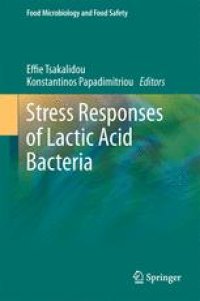
Ebook: Stress Responses of Lactic Acid Bacteria
- Tags: Chemistry/Food Science general
- Series: Food Microbiology and Food Safety
- Year: 2011
- Publisher: Springer US
- Edition: 1
- Language: English
- pdf
Lactic acid bacteria (LAB) constitute a heterogeneous group of bacteria that are renowned for the crucial role they play in the health of humans and animals. While some LAB are food-related and probiotic, remaining harmless and at times even conferring health benefits to the consumer, others are host-associated and include some of the most severe human and veterinary pathogens.
Due to their economic importance for the food industry and their health-related implications as probiotics or pathogens, the genetics, physiology and metabolism of LAB have been under rigorous investigation over the past decades. During food processing and storage, LAB reside under adverse environmental conditions designed to be bacteriostatic or bactericidal for food spoilage microorganisms and foodborne pathogens. In addition, during consumption, the key feature of probiotic strains is their aptitude to survive through the harsh environment of the gastrointestinal tract of the host so as to reach and colonize the intestine and exert their health-promoting effects. Furthermore, the pathogenic nature of certain LAB species has been clearly associated with their tolerance to environmental stresses.
Organized into 5 parts, this book discusses the current knowledge of the stress physiology of LAB. Part I provides an introductory overview of the stress responses of LAB; Part II focuses on the responses of LAB towards specific environmental stresses; Part III presents the stress responses of LAB in the context of species and genera; Part IV discusses the applications and the future aspects of LAB stress research; and Part V highlights in a concluding summary the most important research challenges in the field that will significantly improve our conception of stress behavior in LAB.